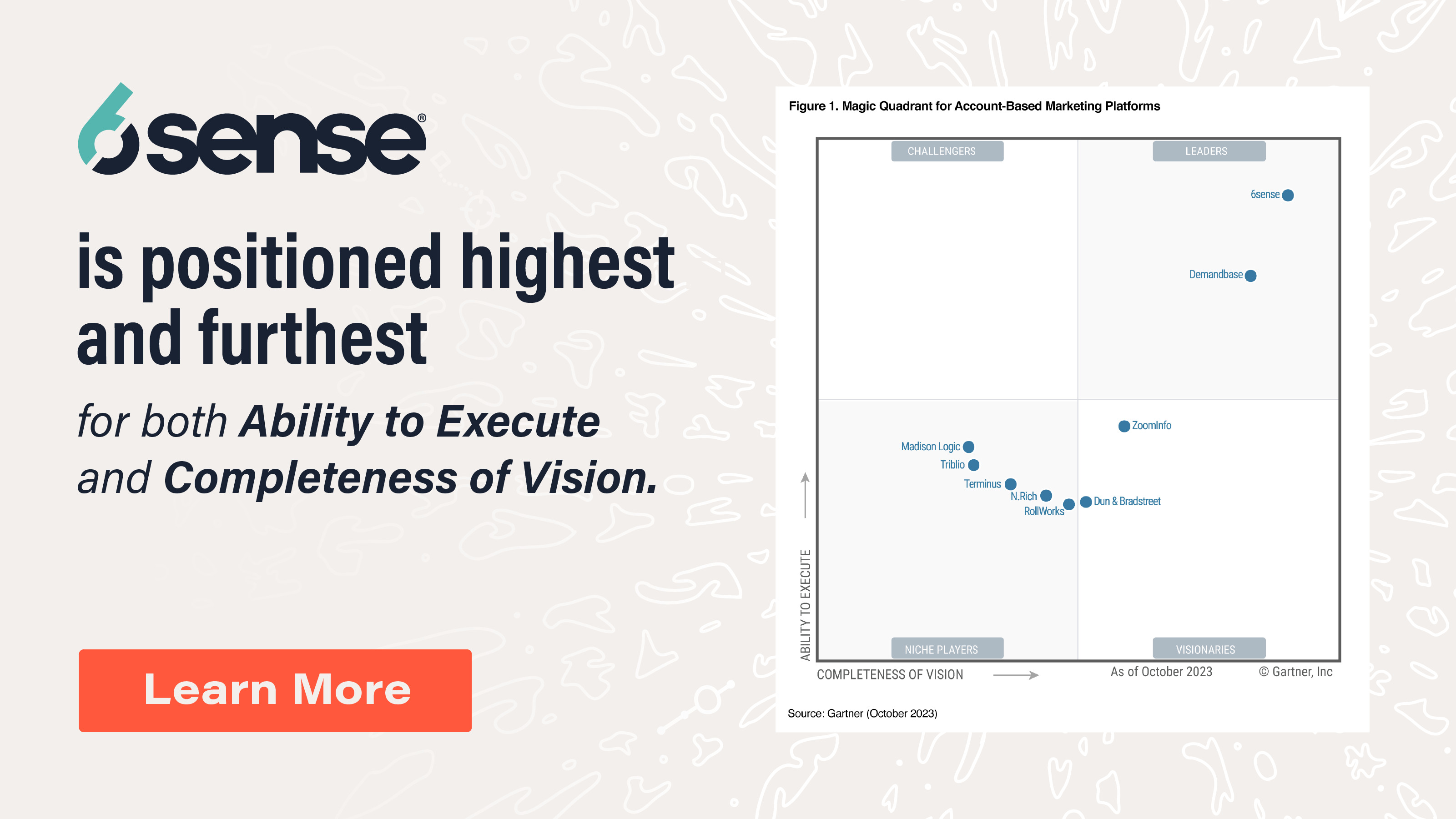Sellers crave one thing over all: clarity.
They need clear insights such as:
- Which accounts they should engage
- If a target account actually needs their product
- Which persona at an account to talk to next
- Whether there are important stakeholders yet to engage
Without this information, sellers face an uphill battle to make headway into any account.
The typical solution to these problems is to throw as much data and technology at sellers as possible. What they need is more and more information, right? Unfortunately, we’ve reached a saturation point where the volume of info and tools has created confusion instead of clarity.
The sales profession needs to shift away from a “data over everything” mindset to an intelligence mindset.
The practice of sales intelligence sorts through all the noise to find the most meaningful, relevant data. It reveals trends and intent signals you can use to spend less time researching and more time actually selling.
Here are four easy ways sales intelligence gives you more actionable information about your buyers.
1. Revealing In-Market Accounts
The scary truth for any sales team is that only around 10% of your TAM is in-market and primed to buy at any given time.
Without the ability to determine which 10% are in-market, sellers spend lots of time and money chasing dead ends.
Sales intelligence lifts the veil — or shines a light on the Dark Funnel™, as we call it — on the activities an account is doing to reveal when it’s in-market for your products.
By capturing signals like…
- Visiting product pages on your websites
- Researching topics about your product or industry
- Comparing you to competitors on third-party review sites
… and accurately matching that activity to accounts, a sales intelligence platform provides sellers with a real-time list of the companies that are most likely to buy.
2. Finding Key Stakeholders Within In-Market Accounts
Once an account has been identified as in-market, sellers must determine who at the company they should engage. Sales intelligence makes this next step much easier by uncovering the critical decision making personas at these accounts.
Sadly, many sellers depend on data providers whose information isn’t always up to snuff. Sellers need accurate account intelligence they can trust: a buyer’s contact info, experience, title, interests, and more.
Many data providers, including industry-leading ones, can’t deliver this.
When sellers can use a sales intelligence platform they trust, they have everything they need to know about their buyers for crafting personalized engagement
3. Compiling Activities to Get a Clearer Picture of Your Account’s Engagement
Many activities and touches happen throughout every buying cycle. On average, there are eight touches that occur before a prospect takes a meeting or converts in another way.
Unfortunately, the data from these touches are often recorded in disparate systems. Some activity history may be housed in your CRM, while other information lives in your marketing automation platform (MAP), your chatbot tool, your call tracking software, or some combination of other technologies. Digging through all those systems to piece together a full picture of engagements across an entire account can waste hours.
The best sales intelligence solutions consolidate critical information into one place, so you can get the insights you need quickly and start selling.
A sales intelligence platform can deliver information about activities such as:
- Specific topics an account researches
- Pages on your website they visit
- Events they attend
- Engagement with your sales or marketing teams
These insights give sellers a huge advantage by allowing them to craft personalized, relevant campaigns, talking points, and presentations based on real information.
4. Let AI Guide the Way with Recommended Actions
Sometimes the hardest part of engaging buyers is knowing where to start. Sellers can face analysis paralysis as they weigh the benefits of their next possible activities.
Sales intelligence can confidently point sellers in the right direction by understanding what type of activity will influence the right buyer at the right time. Using AI gives sellers an edge. High-performing reps are 1.9x more likely to use AI.
Within a sales intelligence platform, sellers can access AI “recommended actions” which highlight contacts they should engage and why.
By focusing on recommended actions, a seller will quickly understand where their efforts can make the most impact. Sales intelligence rebalances the time a seller spends looking for their next activity and focuses them in the areas that will increase their chances of booking meetings and closing deals



